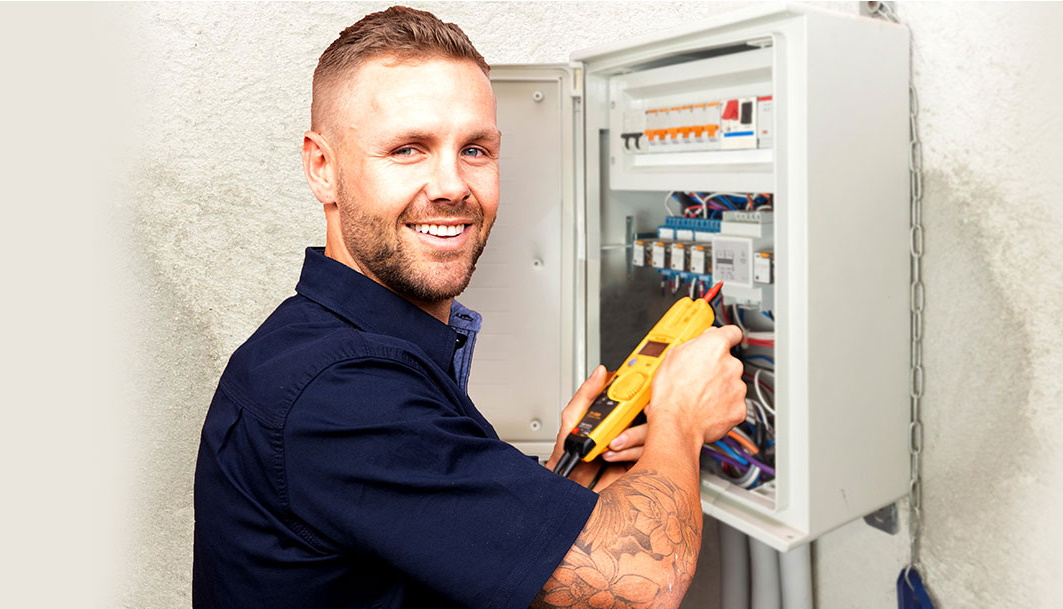Home Electrical Upgrades for Energy Efficiency: A Guide to Lowering Your Carbon Footprint

In today's environmentally conscious world, finding ways to reduce our carbon footprint is becoming increasingly important. One area where we can make a significant impact is through our home's electrical system. By implementing energy-efficient upgrades, we not only save money on our utility bills but also contribute to a greener planet.
LED Lighting
One of the simplest and most effective ways to improve energy efficiency is by switching to LED (Light-Emitting Diode) lighting. LED bulbs use up to 75% less energy than traditional incandescent bulbs and last significantly longer. Any skilled electrician near to me can help you replace all incandescent and compact fluorescent lamps (CFLs) in your home with LED bulbs, you can reduce your lighting energy consumption by a considerable margin.
Additionally, LED lighting offers greater flexibility in terms of colour temperature and dimming capabilities, allowing you to create the perfect ambiance while conserving energy. Though the initial cost of LED bulbs may be slightly higher, the long-term savings and reduced environmental impact make them a worthy investment.
Smart Thermostats
Heating and cooling account for a significant portion of a home's energy consumption. You can ask a professional electrician near to me to install smart thermostat can help optimize energy usage and reduce wastage. Smart thermostats learn your temperature preferences and adjust settings accordingly, ensuring optimal comfort while minimizing energy usage when you're away or asleep. Some models even utilize geofencing technology to detect when you're leaving or returning home, adjusting the temperature accordingly.
Additionally, smart thermostats allow you to control your HVAC system remotely through a smartphone app, enabling you to make changes on the go. By setting energy-saving schedules and monitoring energy usage patterns, you can make informed decisions and potentially save up to 10-15% on your heating and cooling costs.
Energy-Efficient Appliances
Upgrading to energy-efficient appliances can have a significant impact on your home's overall energy consumption. When shopping for new appliances, look for those with the ENERGY STAR label, which indicates superior energy efficiency. Energy-efficient refrigerators, washing machines, dishwashers, and other household appliances use less energy while still providing excellent performance.
Furthermore, consider the size of the appliance, as larger models tend to consume more energy. Selecting the right size for your needs can lead to additional savings. When purchasing appliances, also pay attention to advanced features like load sensing, which adjusts water usage in washing machines, and dual-temperature zones in refrigerators, which help minimize energy waste.
Solar Power Systems
Harnessing the power of the sun through solar panels is an excellent way to reduce your reliance on conventional energy sources and lower your carbon footprint. Solar power systems convert sunlight into electricity, which can power your home's electrical needs.
Installing solar panels requires an initial investment, but the long-term benefits are substantial. Not only can you significantly reduce or eliminate your monthly electricity bills, but you can also take advantage of government incentives and rebates that promote renewable energy adoption.
In some regions, excess electricity generated by your solar panels can be fed back into the grid, earning you credits or payments from utility companies. This process, known as net metering, further enhances the financial viability of solar power systems.
Best practices to save energy
Saving costs on electricity bills can be achieved through various measures. Here are some effective ways to reduce your electricity expenses:
-
Unplug Electronics and Use Power Strips: Many electronic devices consume power even when they're turned off or in standby mode. Unplug electronics when not in use, or use power strips with an on/off switch to easily cut off power to multiple devices simultaneously.
-
Seal Air Leaks: Insulate your home and seal any air leaks to prevent the loss of conditioned air. This ensures that your heating or cooling system doesn't need to work harder than necessary, reducing energy waste.
-
Use Natural Light and Ventilation: Make the most of natural light during the day by opening curtains or blinds. Additionally, utilize natural ventilation instead of relying solely on-air conditioning or fans when weather conditions allow.
-
Energy-Efficient Windows: If feasible, consider upgrading to energy-efficient windows. These windows are designed to minimize heat transfer, keeping your home cooler in summer and warmer in winter, thus reducing the need for excessive heating or cooling.
-
Adjust Water Heater Temperature: Lower the temperature setting on your water heater to around 120 degrees Fahrenheit (49 degrees Celsius). This reduces energy consumption without compromising comfort.
-
Energy-Saving Power Settings: Configure energy-saving settings on your electronic devices, such as laptops, computers, and smartphones. Enable features like sleep mode or power-saving mode to minimize energy usage.
Making electrical upgrades to improve energy efficiency in your home is a win-win situation. Not only do you reduce your environmental impact and save money on utility bills, but you also contribute to a more sustainable future. Consider implementing these upgrades and embrace a greener lifestyle while enjoying the benefits of enhanced comfort and energy savings.




